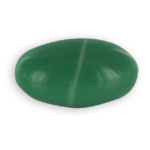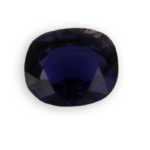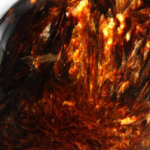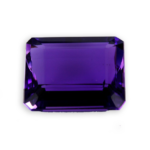
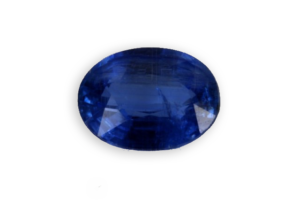
kyanite
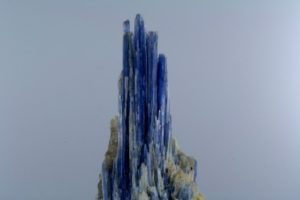
kyanite crystals from Brazil
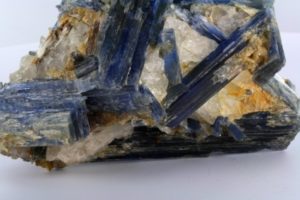
kyanite crystals from Brazil
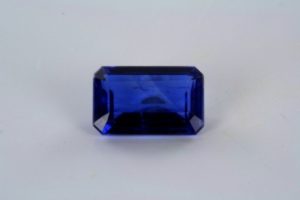
emerald cut kyanite from Nepal
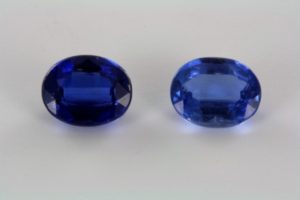
oval kyanites from Kashmir
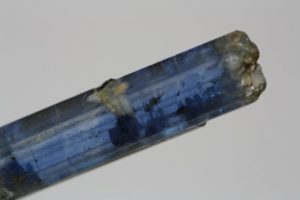
crystal of gem kyanite
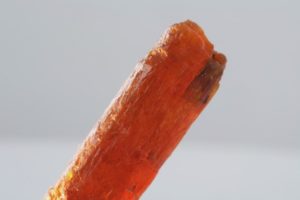
orange cyanite crystal from Tanzania
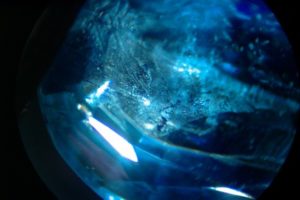
cloud like liquid inclusions
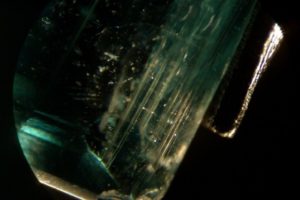
tube type inclusions in green cyanite
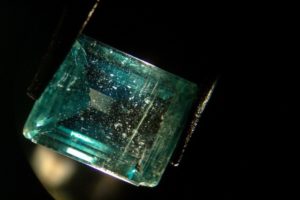
liquid like inclusions in disthene
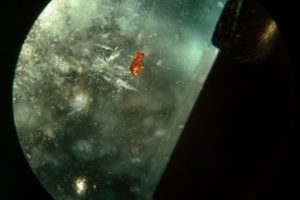
solid like inclusion : rutile crystal
Detailed sheet
kyanite
Its name recalls its dominant color : blue in Greek (cyan).
Sometimes colorless, but generally blue to bluish green, this gemstone has a hardness ranging, with its texture in plans, from 4.5 (direction of elongation) at 6 to 7 (perpendicular to the elongation). It also has areas of different shades of blue that help to identified it.
A green variety was recently discovered as well as orange crystals in Africa.In Nepal and Kashmir Kyanites have a shade of blue color similar to that of sapphire.
The Kyanite is a polymorph of andalusite and sillimanite, it has the same chemical composition but the shape of its crystals is different.
The blue cyanites owe their color to titanium and iron (such as sapphires), the green to vanadium and the orange to manganese.

CHEMICAL CHARACTERISTICS
Al2SiO5
aluminium silicate mineral

PHYSICAL CHARACTERISTICS
Main color
blue
Other colors
brown, grey, colourless, orange, pink, green
Color of streak
white, colourless
Luster
pearly, vitreous
Hardness
4.0 to 7.0
Density
3.50 to 3.70
Cleavage
perfect
Fracture
fibrous, uneven
easy cleavage

OPTICAL PROPERTIES
Transparency
transparent
Refractive index
1.710 - 1.735
Double refraction
0.015
definite, biaxial (-)
visible double refraction
No
Dispersion
0.020(0.011)
Pleochroism
strong
Number of colors
3
colorless, light blue, dark blue
Absorption spectrum
446

cyanite or blue disthene spectrum system

kyanite or orange disthene absorption spectrum
Fluorescence
variable, weak
rarely flourescent from rose to red

CRYSTALS PROPERTIES
elongated prismatic bladed crystals
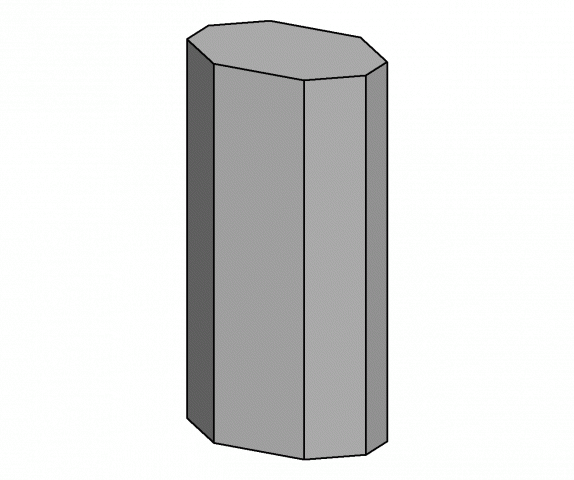
crystals system
tetragonal

OTHER INFORMATIONS
Astrological sign
Gemini, Pisces, Sagittarius

APPROACHING GEMS
Exploited
sites
It is found in France in Baud (Morbihan), Horns (Cantal), the Levant Islands(Var), Switzerland (beautiful crystals on the Gotthard), Austria, Burma, Brazil, United States (North Carolina), Kenya, Nepal, Kashmir, Zimbabwe …
use in jewelry
This stone too brittle for jewelry, is only cut for collectors ( rectangular shaped, or cabochon), in Central Asia and Nepal it is still used for adorning rings and pendants, although it can be of a beautiful “sapphire blue”, it loses its shine and gloss to the friction of harder materials.
Daily care
and precautions
Fragile, it scratches and can even disintegrate into strips as a result of pressure or shock.
imitations and
treatments
It is not imitated but used very often to fool the tourists when it is sold instead of sapphire.
Historical
healing properties
It would be a high energy stone that would help make the point with oneself, solve problems and to accept oneself as he is. It would reduce all kinds of psychological problems, help to find solutions, have a positive effect on sleep by improving it, if this stone is laid under the pillow. It would also have a role in treatment of the body. It would be the stone of a serene well-being, it would facilitate quiet sleep. In Chinese medicine it would help re-balance the yin and yang. By its color it would be appreciated by sailors she would accompany the trips by bringing tranquility. Some believe it would promote the learning of languages and facilitate fluency.
Venez visitez
notre site web
voillot-joaillier.fr
Lorem ipsum dolor sit amet, consectetur adipiscing elit. Ut elit tellus, luctus nec ullamcorper mattis, pulvinar dapibus leo.Lorem ipsum dolor sit amet, consectetur adipiscing elit. Ut elit tellus, luctus nec ullamcorper mattis, pulvinar dapibus leo consectetur adipiscing elit. Ut elit tellus, luctus nec.

